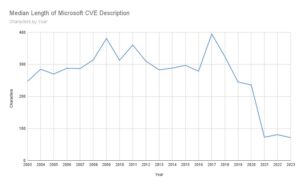
The US government has denied that it is banning sales of artificial intelligence (AI) chips from Nvidia and AMD to nations in the Middle East.
It was reported earlier this week that the US government had initiated restrictions on exports of the chipmakers’ A100 and H100 products, in the form of implementing licensing requirements in order to be able to sell them in some Middle Eastern countries. But a US Department of Commerce spokesperson was quoted by Reuters as denying that chip sales had been blocked outright.
Nvidia noted in a recent regulatory filing that starting in the second quarter of 2024, it would have to apply for a special license to sell subsets of A100 and H100 chip products in some countries in the Middle East (it didn’t specify which countries these were). And AMD received a letter from the Commerce Department to the same effect, a person familiar with the matter told Reuters.
The A100 and H100 chips enable functionality in image and speech recognition. The A100 is designed to accelerate AI workloads by performing matrix operations at higher speeds, while the H100 enables users to scale up their computing performance quickly and easily, making it an ideal solution for large-scale machine learning and deep learning workloads, according to Exit Technologies. As such, they can be used for military-grade hacking operations and cyber espionage at scale.
Limiting Market Access
Despite the US spokesperson’s denial of a ban for the Middle East, there is precedent for using export licensing rules to limit market access. The shipping of AI chips to China is already restricted for instance, with export license requirements that set such a high hurdle to do business in the region that some consider it an effective blockade. That move was made in the name of national security to restrict China’s access to technology that could supercharge its kinetic and cyber military operations.
“Over the long term, our results and competitive position may be harmed, and we may be effectively excluded from all or part of the China market if there are further changes in the US government’s export controls,” according to the Nvidia filing. And last September, AMD said it had received new license requirements that would mean halting exports entirely of its MI250 chips to China.
For now, it’s unclear what the licensing requirements in the case of Middle Eastern countries will be, or why the US is implementing them, though it should be noted that some states in the region, such as Iran, are well-known for their hacking operations.
- SEO Powered Content & PR Distribution. Get Amplified Today.
- PlatoData.Network Vertical Generative Ai. Empower Yourself. Access Here.
- PlatoAiStream. Web3 Intelligence. Knowledge Amplified. Access Here.
- PlatoESG. Automotive / EVs, Carbon, CleanTech, Energy, Environment, Solar, Waste Management. Access Here.
- PlatoHealth. Biotech and Clinical Trials Intelligence. Access Here.
- ChartPrime. Elevate your Trading Game with ChartPrime. Access Here.
- BlockOffsets. Modernizing Environmental Offset Ownership. Access Here.
- Source: https://www.darkreading.com/dr-global/us-government-denies-blocking-chip-sales-middle-east
- :has
- :is
- $UP
- 2024
- 51
- a
- A100
- Able
- accelerate
- access
- According
- AI
- All
- already
- AMD
- an
- and
- Apply
- ARE
- artificial
- artificial intelligence
- AS
- At
- Ban
- BE
- been
- blocked
- blocking
- business
- but
- by
- CAN
- case
- Changes
- China
- chip
- Chips
- Commerce
- competitive
- computing
- Consider
- controls
- could
- countries
- cyber
- deep
- deep learning
- Department
- designed
- didn
- do
- Earlier
- easily
- East
- eastern
- effect
- Effective
- effectively
- enable
- enables
- entirely
- espionage
- Ether (ETH)
- excluded
- Exit
- export
- exports
- familiar
- Filing
- For
- form
- from
- functionality
- further
- Government
- hacking
- had
- halting
- Have
- High
- higher
- HTTPS
- ideal
- if
- image
- implementing
- in
- initiated
- instance
- Intelligence
- Iran
- IT
- ITS
- jpg
- large-scale
- Last
- learning
- letter
- License
- Licensing
- licensing requirements
- Long
- machine
- machine learning
- made
- Making
- Market
- Matrix
- Matter
- May..
- mean
- Middle
- Middle East
- Military
- move
- name
- National
- national security
- Nations
- New
- noted
- now
- Nvidia
- of
- Operations
- or
- order
- our
- over
- part
- performance
- performing
- person
- plato
- Plato Data Intelligence
- PlatoData
- position
- Precedent
- Products
- Quarter
- quickly
- received
- recent
- recognition
- region
- Requirements
- restrict
- restricted
- restrictions
- Results
- Reuters
- s
- Said
- sales
- same
- Scale
- Second
- second quarter
- security
- sell
- September
- set
- Shipping
- should
- solution
- some
- special
- speech
- Speech Recognition
- speeds
- spokesperson
- Starting
- States
- such
- Supercharge
- T
- Technology
- term
- that
- The
- their
- Them
- There.
- These
- they
- this
- though?
- to
- us
- us government
- used
- users
- using
- was
- we
- well-known
- were
- What
- which
- while
- why
- will
- with
- would
- zephyrnet













